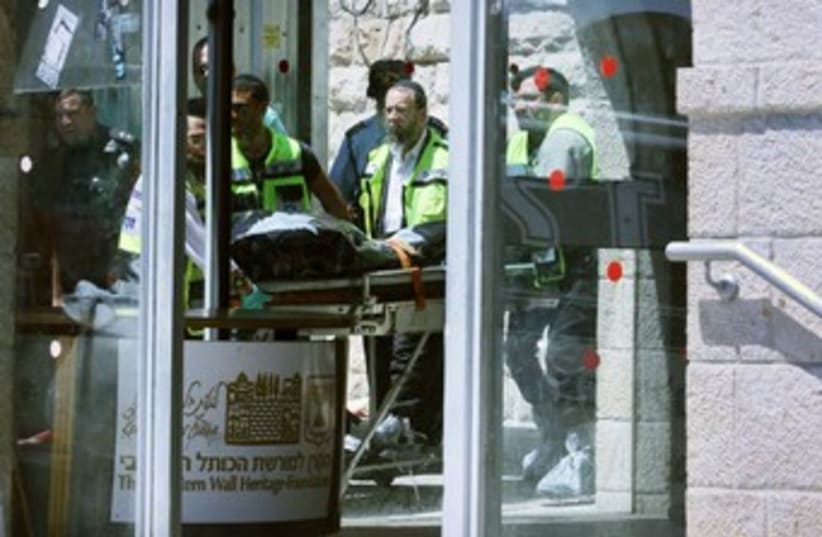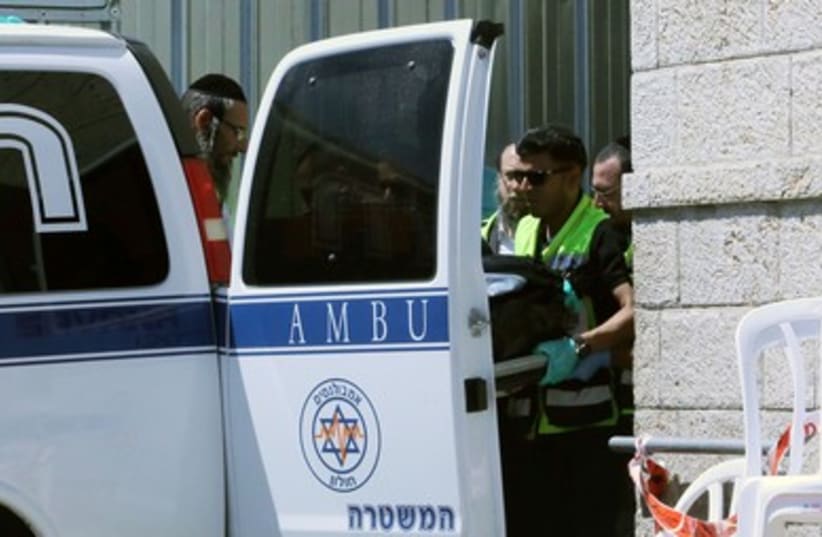
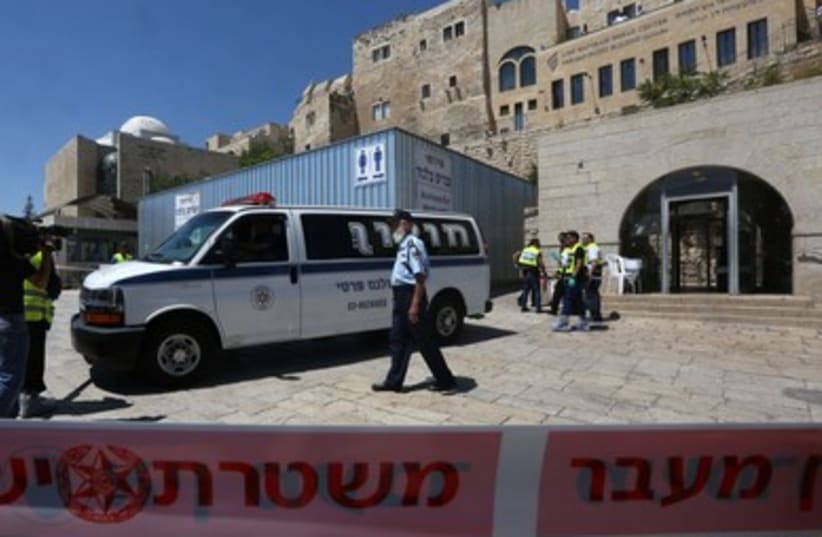
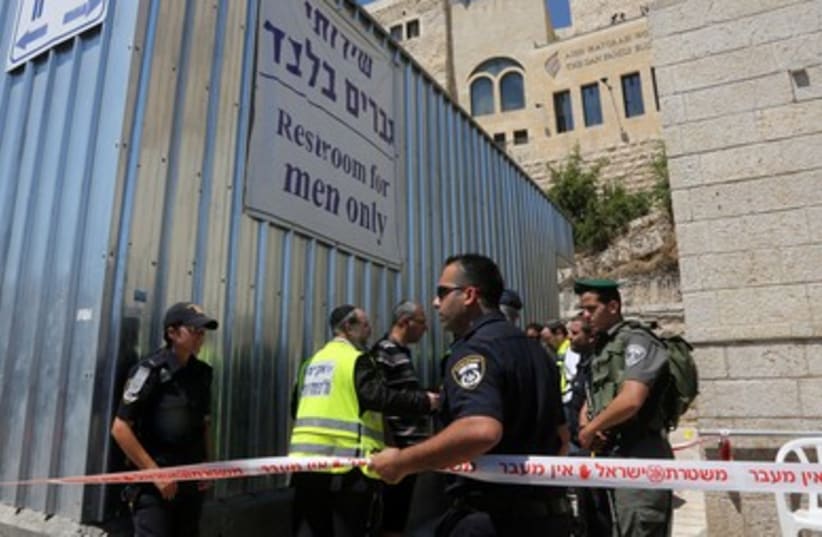
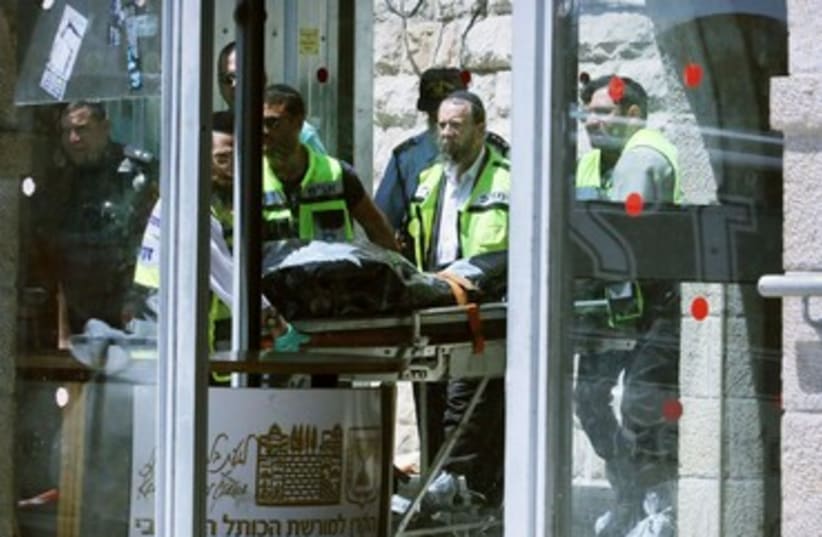

It is unclear why the man, identified by police as Doron Ben-Shalush, 46, shouted the words.Police spokesman Micky Rosenfeld said the guard opened fire with his sidearm because he suspected the man was a Palestinian terrorist.“The fact he shouted ‘Allahu Akbar,’ that seems to be why the security guard drew his weapon and fired a number of shots at him,” Rosenfeld said. “We are looking into what [the deceased’s] motives were.”Ben-Shalush’s body was pierced by 10 bullets, according to media reports.“We’re looking into a number of different directions,” said Rosenfeld. “The guard fired because he feared for his life and the investigation is continuing.”The unidentified guard was arrested following the shooting and appeared before the court Friday afternoon, at which time a judge extended his remand by five days, pending further investigation.According to Ynet, Ben-Shalush was recently divorced and occasionally homeless.The news site added that an acquaintance of his described him as “eccentric.”The shooting occurred as hundreds gathered for prayer in one of the capital’s most secure areas. Immediately following the violence much of the Western Wall was shut down to all visitors so police units could investigate the incident.The Kotel has been a hotbed of tension and violence in recent months due to conflicts of Jews attempting to visit the Araboperated Temple Mount and ultra-Orthodox Jews who have attacked the Women of the Wall prayer group for wearing prayer shawls and tefillin typically worn by men.
